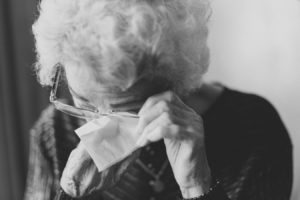How To Protect Loved Ones From Elder Abuse
Adult victims of child abuse often face serious long-term consequences that can take time and therapy to heal. As important as it is to protect children, it is also vital to help our elders, since studies show that nearly one in 10 people aged over 65 experience elder abuse. If you have a loved one who is living in a care home, alone, or with someone you do not know well, it is important to watch out for the signs of elder abuse. It is also vital to tackle this problem with a proactive stance, preventing any type of abuse from happening in the first place.
What Is Elder Abuse?
For many people, the word ‘abuse’ conjures up physical assault, but the elderly can be abused in many ways – including sexually, emotionally and psychologically. Negligence – failing to ensure the elderly have the food and other forms of care they need- can also amount to abuse. It is therefore important to be vigilant for changes in behaviour, habits, or personality and mood. Just because your loved one is in a well-reputed nursing home, it doesn’t necessarily mean they are safe from abuse. A WHO survey from 2017 showed that some 64% of nursing home employees admitted to having abused elderly residents.
Surprising Findings On Financial Abuse In Seniors
Seniors lose billions to financial abuse. A survey by non-profit organisation, Investor Protection Trust, showed that around 84% of experts who deal with the financial abuse of elders have noticed an increase in this crime. In order to prevent this situation, encourage your loved one to make a plan that indicates power of attorney and health care instructions. Stay close to your loved ones; this way, if they feel they are being abused, they will feel confident about letting you know. Help monitor their bank account, letting an advocate know if you notice any unusual money withdrawals. Consider relying on a service like EverSafe – a personal detection and alert system designed to stop fraudsters in their tracks. To prevent fraudsters from abusing elderly relatives, give your loved one simple guidelines. For instance, they should never sign a document they do not understand, and they should keep their financial affairs private.
Watch Out For Signs Of Potential Abuse
Because abuse isn’t always physical, its signs may be harder to spot. Signs include any form of unexplained injury or harm, depression, changes in usual behaviour and insomnia. Signs of neglect, meanwhile, include lack of grooming, weight loss, bedsores and broken or lost items such as eyeglasses, hearing aids and the like. If you suspect abuse in any way, shape or form, contact Adult Protective Services. The latter will send a professional to investigate the issue. You might also find it useful to visit the National Center on Elder Abuse website. This has a host of information on the subject. It teaches you how to learn and report abuse, provides contact information for the different organisations that can help, and invites you to prevent abuse by being a volunteer or by promoting greater awareness of the issue.
If your senior family member does not live with you, making sure they are happy, healthy and free from abuse is vital. Watch out for subtle signs of abuse, and ask for help immediately if you suspect it. Help your loved one too prevent abuse by encouraging them to sort out financial affairs and give a power of attorney to a trusted legal professional. If you suspect abuse but cannot prove it, think of how you can change your loved one’s living arrangements; go with your instinct if something tells you your loved one may be facing elder abuse.




